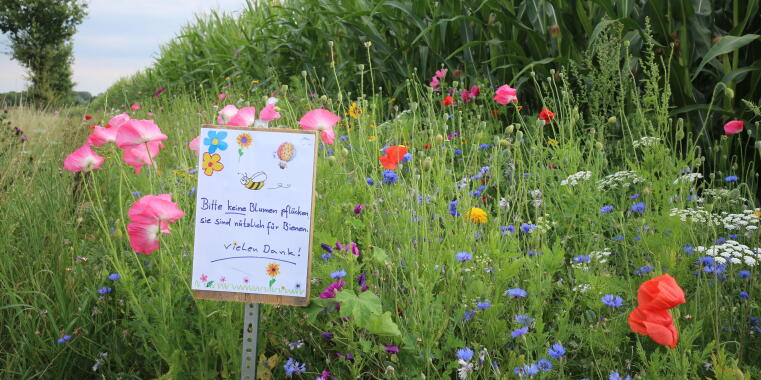
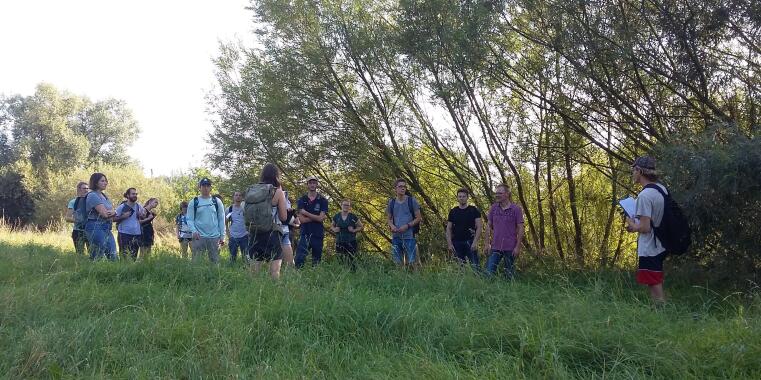
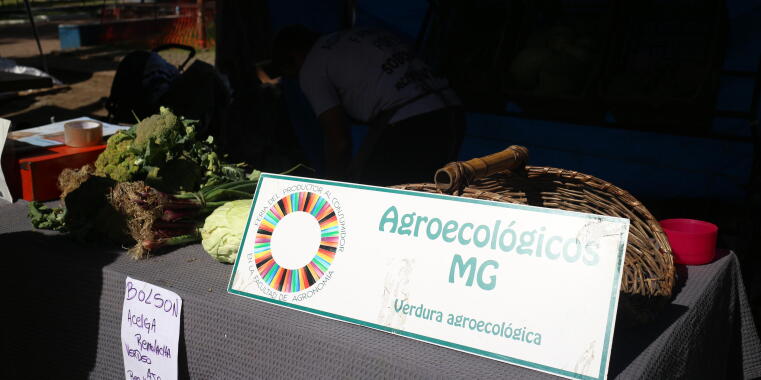
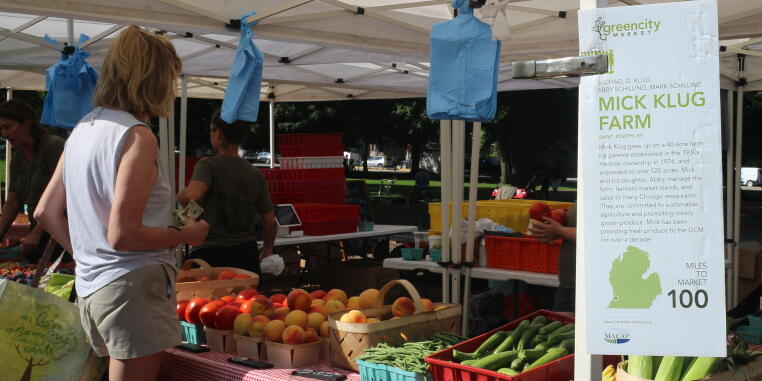
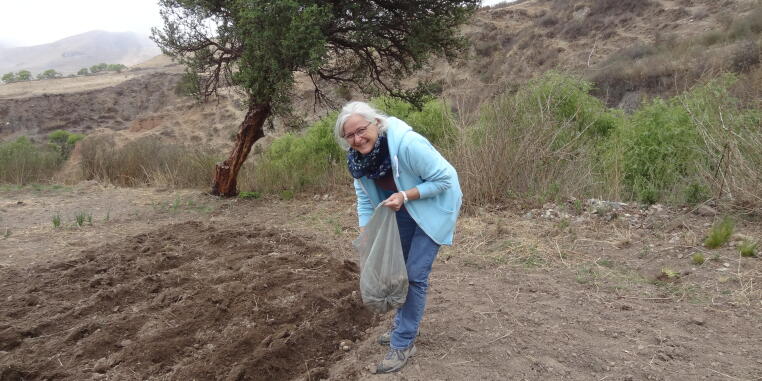
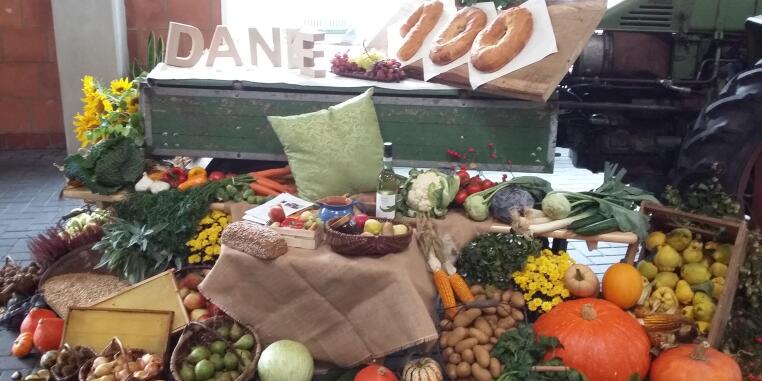






Until the mid-1990s of the last century, agroecology was understood as the science of applying concepts derived from ecological research to the design and management of agroecosystems. At the beginning of the new millennium, this definition was expanded to include considerations of the entire food system. Thus a scientific definition emerged that went beyond pure natural science and became interdisciplinary. Questions of knowledge integration, education, smallholder agriculture and food sovereignty and circular economy were also emphasized more strongly. In agroecology, we consider the entire food system, including the economic framework, human-nature relations and ongoing discourses.
Contact: Dr'in Ana Cornelia Steinhäuser
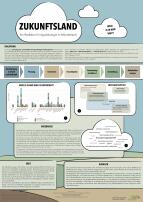

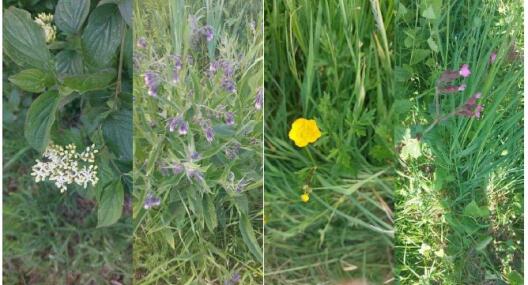
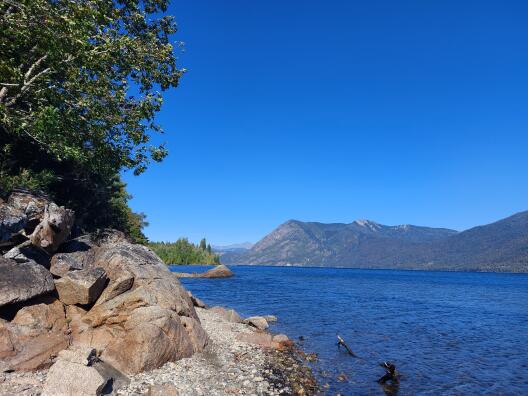

In the research field of Agroecology in our Working Group, Dr. Cornelia Steinhäuser and Prof. Dr. Tillmann Buttschardt have authored a fundamental contribution in a colaborative textbook of various perspectives on the practice of landscape ecology. In landscape ecology, the ecological aspects of land use and agricultural systems are often examined, while social and agricultural factors receive less attention. Historically, agriculture has contributed to increasing biodiversity, but modern developments in standardization and globalization have also caused problems such as species loss and environmental pollution. Today, there are various approaches to agriculture, with the challenge being to respect ecological boundaries, tackle social inequalities, and promote a climate-neutral economy. Transformative agroecology connects science, practices within the agri-food system, and social movements, aiming for diverse, local, and regenerative cultural landscapes. Our contribution examines how landscape ecology can support these processes.

From September 16-21, 2024, the 31st Colloquium of the IGU Commission on the Sustainability of Rural Systems took place in Mendoza (Argentina) under the title “Contested Rural Spaces”. Dr. Cornelia Steinhäuser is a member of the Steering Committee of the IGU Commission and plays a key role in both the Organizing and Scientific Committee of the conference.
There will be four main topics, all related to the research lines of the WG Ecological Planning:
1) Regional productions/ecologies
2) Rural-urban disputes
3) Socio-environmental inequalities and environmental conflicts
4) Land ownership, tenure and planning
An outstanding feature of the conference is the fact that, in addition to the two conference days, a so-called field study will also take place, in which the topics of the conference will be explored in depth on site and in practice.
Further information on the conference can be found here.
Agroecology as a relationship with the earth
Central concepts of agroecology are food sovereignty and territory. From the perspective of Latin American research, territorio describes the relationship of people and communities to the earth on which and with which one lives. It can thus be understood as a place and community of human and more-than-human beings. Bruno Latour speaks of a return to the terrestrial. Tim Ingold talks about sentient ecology.
But how can such a community be shaped?
Cornelia Steinhäuser, inspired and in exchange with artists, has been exploring this question in recent months and has held the following lectures and workshops:
Cornelia Steinhäuser, Mayra Citlalli Rojo Gómez: “Shifting boundaries: exploring approaches in a more-than-human world”, Lecture Series Interdependencies 2024, Geographisches Kolloquium, University of Münster, 7 - 8 May 2024
Cornelia Steinhäuser: “Harvesting Diversity: the cultivation of varied knowledges through farming and gardening in diverse communities”, ZIN Brotzeitkolloquium 2024 - Universität Münster, 18 April 2024
Cornelia Steinhäuser, Grashina Gabelmann and Henriette Aichinger: ExperiSpace ‘Collective creation of a digital Emotional Map’, IfL workshop #9, 20 – 21 March 2024, Leipzig
Cornelia Steinhäuser: „Agroecología, paisajes y el Antropoceno”, Conferencia internacional Crisis, Política y Resistencia en el Antropoceno, Weingartener Lateinamerikagespräche, 3-5 de noviembre de 2023
Cornellia Steinhäuser: „Von artistic research zu kreativen Methoden der Geographie“, Session „Künstlerisch-performative Zugänge zu Raum“, Deutscher Kongress für Geographie 2023, Goethe Universität Frankfurt am Main, 19.-23. September 2023
For September 2024 she is co-organizing a coloquiuum on this topic in Mendoza, Argentina, with the title “Contested rural spaces / Territorios rurales en disputa”. For more information see our homepage.
From the 3rd to the 5th of November the Weingarten Latin America Talks took place in Weingarten, South Germany. This interdisciplinary conference deals with current developments and issues in Latin America, from social (in)equality, decolonization, peace making, gender and climate justice to macro economic issues. The presentation and discussion of current theses and PhD`s by researchers from Latin America and Germany took place on the 2nd of November Dr’in Cornelia Steinhäuser was invited as a commentator on ongoing doctoral theses and as an expert in agroecology. Her lecture entitled “Agroecología, paisajes y el Antropoceno” addressed questions of community building in agroecological, biodiverse landscapes against background of the conceptual framework of the Anthropocene.
The conference took place as part of the knowledge laboratory “The Anthropocene as a Multiple Crisis” of the Center for InterAmerican Studies (CALAS).
The Research Group Applied Landscape Ecology and Ecological Planning hosted at GfÖ-Conference together with the Thünen Institue a session with focus on Agroecology.
The title was: Agroecology - towards a transformation of farming and food systems in Europe and took place on Wed. 13.09.2023 at Audimax at Leipzig University.
The report on the scientific perspective on the project "Ecosystem Künstlerdorf - Learning from Nature" has been published. It describes the challenges, opportunities and potentials of a socio-ecological transformation process of an art institution. And it explores for this case study, how permaculture, gardening and 'learning from nature' were used as inspiration with the aim to build a just and sustainable community.
Steinhäuser, Cornelia (2022). Begegnungen mit Mensch und Natur im Künstlerdorf Schöppingen: Socializing with people and nature at the Künstlerdorf. In Julia Haarman (Ed.), Ecosystem Künstlerdorf (pp. 21–41). Stiftung Künstlerdorf Schöppingen.